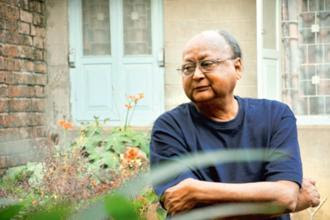Dhauli by Jayanta Mahapatra Analysis
Afterwards when the wars of Kalinga were over, the fallow fields of Dhauli hid the blood-spilt butchered bodies. [originally 'red-smeared voiceless bodies'] As the earth burrowed into their dead hunger with its merciless worms, [was 'tortured worms'] guided the foxes to their limp genitals. Years later, the evening wind, trembling the glazed waters of the River Daya, keens in the rock edicts the vain word, like the voiceless cicadas of night: [was 'shuttered silence, an air:'] the measure of Ashoka's suffering does not appear enough. The place of his pain peers lamentably from among the pains of the dead. Analysis The poem Dhauli is what Odisha poet Jayanta Mahapatra makes of the aftermath of Kalinga war (war between the Maurya Empire led by Ashoka and the Kalinga Kingdom, that is to say present-day Odisha state) where Ashoka repented perpetrating deadly gruesome attacks on the people of Kalinga and exterminating many in the order of ten thousand,...




